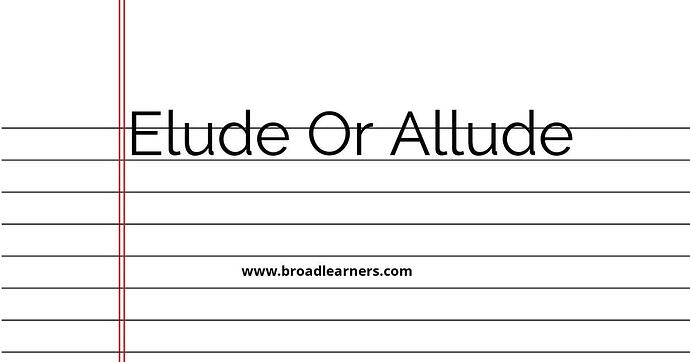'Elude' and 'allude' are commonly confused words in English grammar. Understanding the difference between 'elude' and 'allude' is important to use them correctly in written and spoken English.
'Elude' means to escape from or avoid something or someone in a skillful or clever way. It indicates the act of evading or escaping from a situation or problem.
'Allude' means to indirectly refer to or mention something or someone. It indicates making an indirect or casual reference to something or someone without explicitly stating it.
Let's take a closer look at the meanings and usage of 'elude' and 'allude'.
| 'Elude' | 'Allude' |
|---|---|
| The word 'elude' is used to indicate the act of escaping or avoiding something or someone. | The word 'allude' is used to indicate making an indirect reference to something or someone. |
|
|
To remember the difference between 'elude' and 'allude', it can be helpful to remember that 'elude' is associated with escaping or avoiding, while 'allude' is associated with making indirect references.
Here are some examples of correct usage:
- The solution to the puzzle eluded me for days.
- The author alluded to historical events in his novel.
- The politician's speech alluded to corruption without directly accusing anyone.
- The criminal eluded capture by disguising himself as a janitor.
Remembering the correct usage of 'elude' and 'allude' will improve your grammar and communication skills.
